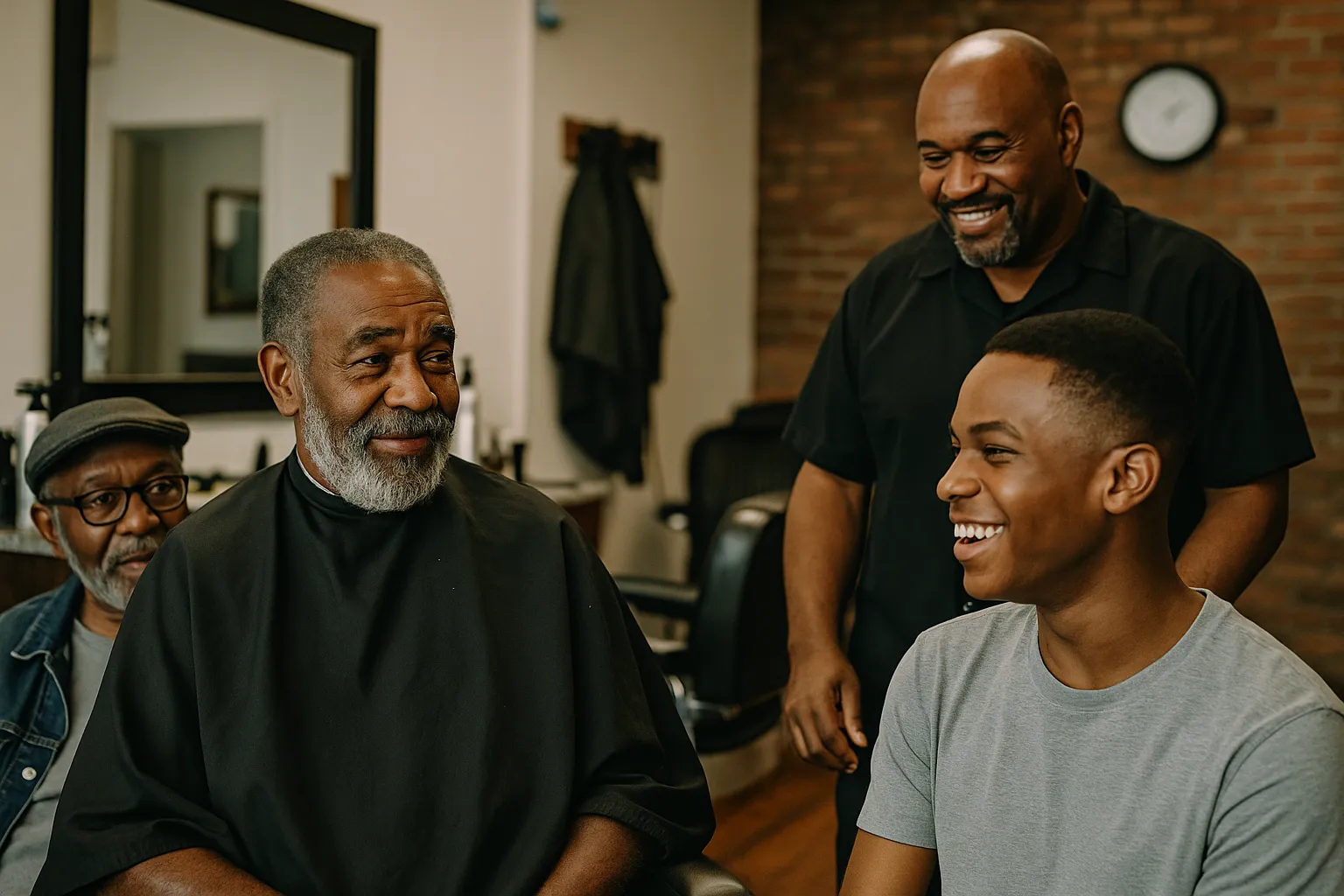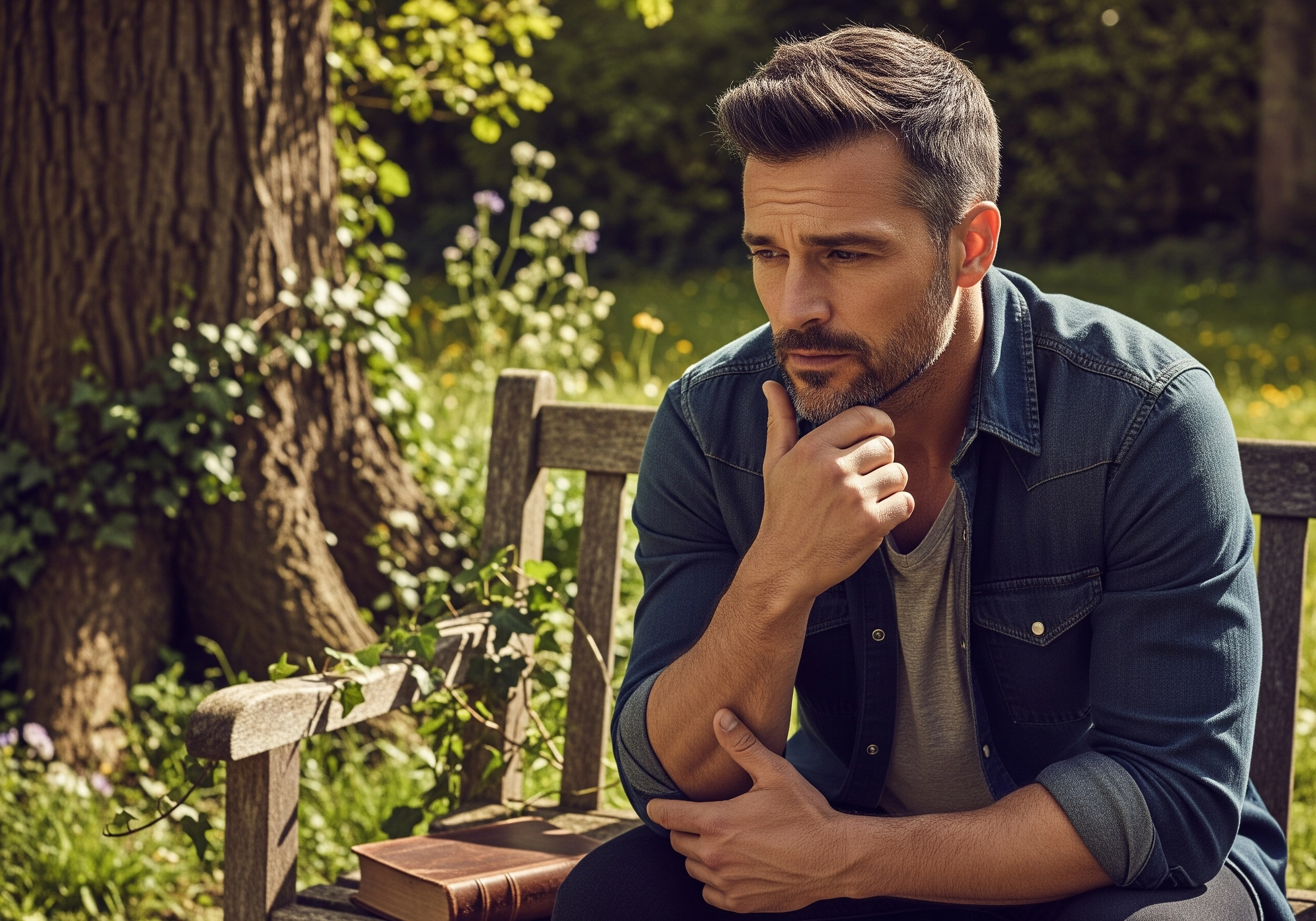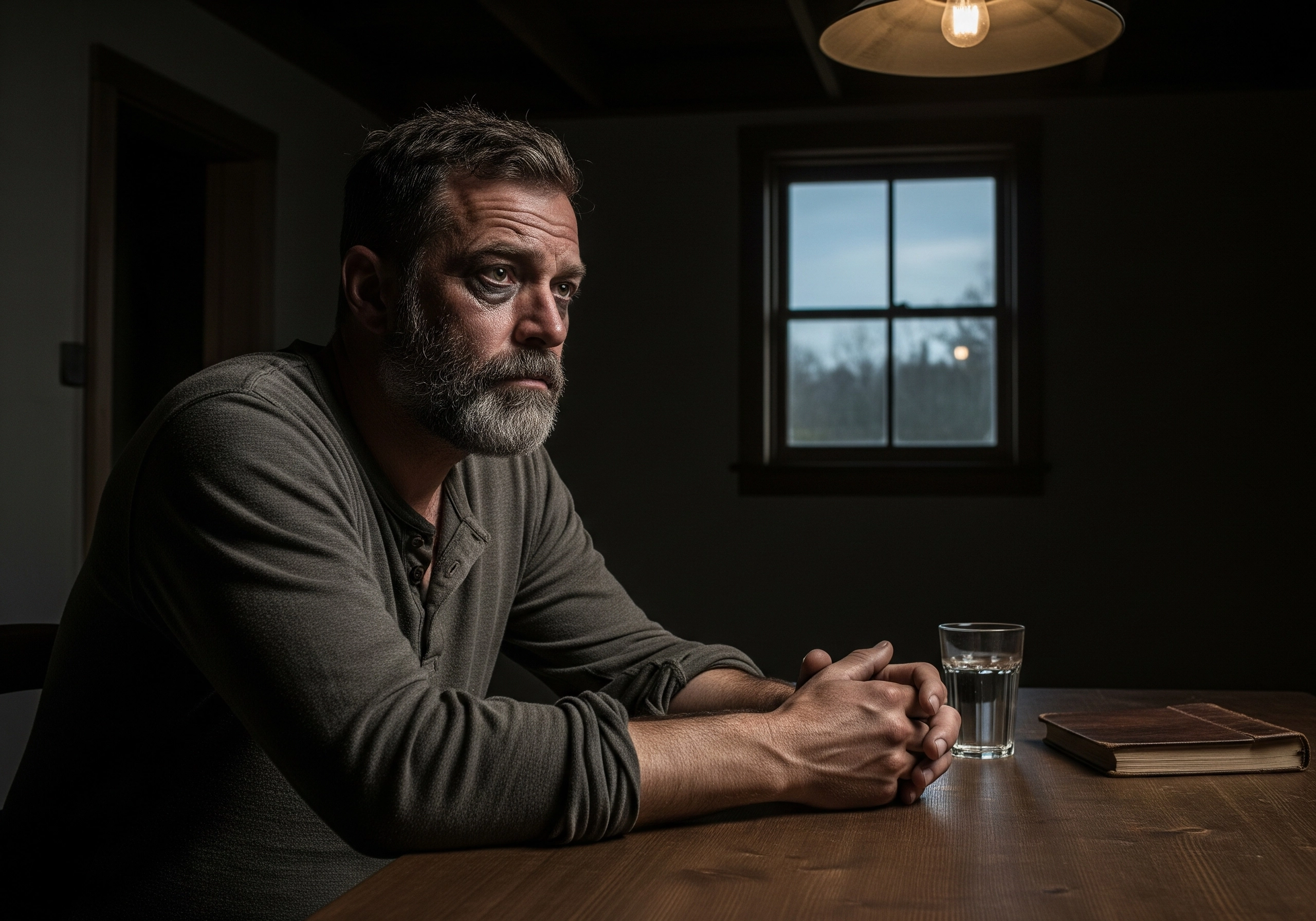The Barbershop: More Than Just a Haircut
There’s something sacred about the barbershop.
It’s not just the hum of the clippers, the scent of aftershave, or the click of the scissors. It’s the space — the energy. For many men, the barbershop is one of the last places where vulnerability slips through the cracks of masculinity without judgment.
In a world where men are often expected to be composed, confident, and emotionally contained, the barbershop offers a brief pause. A different rhythm. A place where the conversation flows freely, the guard comes down, and the truth starts to surface — one haircut at a time.
You sit in the chair, cape around your neck, and suddenly the weight of your week, your month, your life, doesn’t feel quite as heavy. Your barber doesn’t ask, “Are you okay?” in a way that feels intrusive. He asks, “How’s everything been?” And somehow, that’s enough to open the door.
Unfiltered Conversations, Real Connection
Barbershops are unique because they don’t demand vulnerability — they invite it. You’re not expected to bare your soul. But if you do? Nobody flinches.
Conversations can start on the surface: sports, music, work. But within minutes, they shift:
- “Man, I’ve been feeling the pressure lately.”
- “Things at home are… complicated.”
- “I don’t know, I’ve just been in my head a lot.”
What begins as small talk slowly turns into real talk. And the barber’s chair becomes more than a place of grooming — it becomes a kind of therapy.
There’s no clipboard. No formalities. Just shared humanity. A mirror in front of you, and often, a man behind you who knows more about your emotional state than your closest friends.
Why Men Open Up Here
The barbershop feels different because it is different. It’s not sterile or clinical. It’s not formal or structured. It’s human. It’s personal. And it’s familiar.
There’s a physical closeness — you’re within arm’s reach of another person, but without pressure. You’re face-to-face with a mirror, which often forces you to sit with your own reflection, literally and emotionally. The ritual of sitting down, staying still, and letting someone else care for you — even in a simple, practical way — opens a window.
More importantly, the barbershop creates a rare dynamic for many men: a safe, male space where judgment is replaced by understanding, and silence is broken without shame.
There’s also a cultural element. In many communities, especially among Black and Latino men, barbershops have long been places of storytelling, mentoring, laughter, and healing. Generations of men have passed through those doors — not just to get cleaned up, but to get things off their chest.
The Unspoken Role of the Barber
Barbers often become more than stylists — they become sounding boards, advisors, even emotional anchors. They hear about breakups, job losses, parenting struggles, dreams, regrets. They offer perspective without pressure. Sometimes they give advice. Other times, they just listen.
Most barbers never train as therapists. They don’t read psychology textbooks or attend counseling workshops. But what they do master is presence — the ability to hold space for another man without judgment or expectation.
They get to know your routine. They sense when something’s off. They remember details — your kid’s name, your big meeting last week, the fact that you’re not sleeping well lately.
And they create one of the few spaces where emotional check-ins feel natural, not forced.
A Rare Pause in a Fast World
In today’s always-on culture, moments of stillness are rare — especially for men. We’re expected to move fast, produce more, talk less. But the barbershop forces a pause. You sit. You wait. You stay put for 30 minutes, maybe more.
In that time, something shifts. You’re no longer racing through your day. You’re present. And in that stillness, thoughts rise to the surface that don’t have time to emerge elsewhere.
It’s in that moment, somewhere between the clipper’s buzz and the barber’s question — “So how’ve you been really?” — that many men finally exhale.
Stories in the Mirror
Every man who walks into a barbershop brings a story — some polished, some heavy, some still unfolding. And for reasons we don’t fully understand, the chair becomes a place where those stories find a voice.
A man going through divorce might quietly open up to his barber before telling his best friend. A teenager unsure about his future might find encouragement in a barber’s words. A stressed-out father might admit for the first time that he feels overwhelmed.
There’s no script, no expectation. Just a shared moment between two men — one listening, one speaking — as the outside layers fall away.
The mirror doesn’t lie. And when you finally speak the truth aloud, you realize you’ve been carrying more than hair on your shoulders.
Community Over Counseling
What makes the barbershop unique is that it doesn’t try to be a mental health space — yet, in many ways, it is one. Unlike traditional therapy, where you sit on a couch and explore your past, the barbershop offers a different kind of healing: through presence, routine, and connection. It’s casual but consistent. It’s familiar without being clinical.
There’s no stigma in going to the barbershop — only tradition. You go every few weeks, maybe even weekly. You don’t go because something’s wrong. You go because it’s time. And in that routine, there’s an unexpected benefit: a dependable place to be seen, heard, and known.
Men often find it easier to open up in places that don’t feel like pressure cookers for vulnerability. There’s no spotlight. No therapist’s notebook. No expectations. In that unassuming environment, it becomes easier to say what’s really going on. The barbershop doesn’t ask for healing — but it allows for it.
The Barber as the Unofficial Therapist
Barbers hear it all. They listen to their clients talk about relationships, grief, insecurity, joy, money problems, dreams, fatherhood, loss, betrayal, and recovery. And they often listen with the kind of attention that most people rarely receive elsewhere — not because they’re trained therapists, but because they know what it means to show up, day after day, for someone.
Some barbers joke that they should have honorary degrees in psychology. But the truth is, they possess something deeper than theory: trust. Clients return to the same chair, the same voice, the same atmosphere. Over time, that routine builds safety. And when a man feels safe, he talks.
Barbers don’t always offer solutions — nor do they need to. Sometimes all a man wants is to be listened to without judgment, without being interrupted, without being told to “man up” or “get over it.” The barber becomes a mirror — not just to his appearance, but to his internal world.
The Power of Consistency
Consistency is a cornerstone of mental health. When the world feels unpredictable, regular rituals become anchors. The barbershop provides that consistency in a way few other spaces do.
It’s the same route, the same faces, the same chair. And in that repetition, a quiet confidence is born. A man who might be falling apart everywhere else can find stability in the rhythm of the barbershop.
Even when life is chaotic — job changes, breakups, relocations — that familiar space is still there. You sit down, and your barber greets you by name. He remembers what you said last time. He notices the tension in your shoulders or the tired look in your eyes. That kind of consistent presence has healing power, especially for men who’ve learned to hide how they feel.
Breaking the Isolation
One of the most dangerous aspects of men’s mental health struggles is isolation. Many men don’t have close emotional connections. They have acquaintances, coworkers, teammates — but not many people they can call at midnight or confide in about their fears.
The barbershop chips away at that isolation. It doesn’t replace deep friendship, but it offers something rare: low-pressure intimacy. It gives men a place to talk without the need for formal vulnerability. It reminds them, sometimes without words, that they’re not alone.
A man might hear someone else in the chair next to him talk about struggling at work or feeling anxious — and suddenly, he doesn’t feel so strange. The unspoken message becomes clear: You’re not the only one going through it.
That kind of relatability breaks down walls. It creates connection. And sometimes, it even saves lives.
Generations of Unspoken Wisdom
Barbershops aren’t just places for the present — they’re bridges to the past. They carry stories passed down through generations. Wisdom, humor, pain, and culture all live in the walls. Young men sit beside older men. Fathers bring their sons. Conversations blend past and present in a way that feels organic and powerful.
You hear advice you didn’t ask for — but needed. You hear lessons wrapped in laughter. You hear life experience, not preached but shared. It’s mentorship in its most natural form.
The older men in the shop don’t hand out TED Talks. They tell stories. They recall mistakes. They nod knowingly when someone shares a struggle. That’s where the learning happens — not from lectures, but from presence.
Healing Through Humor and Honesty
Barbershops are also full of laughter. The humor is unfiltered, quick-witted, raw — and healing. Laughter becomes a release valve for emotional tension. You might come in heavy and leave lighter, not because your problems are solved, but because you’ve shared space with others who understand.
That balance — seriousness and silliness, honesty and humor — is part of what makes the environment so disarming. You can say something painful, and a few minutes later, laugh at a shared joke. There’s no pressure to dwell. No need to dramatize. It’s all just part of the flow.
That’s the magic: barbershops normalize the full range of human emotion. You’re allowed to be joyful and broken, confident and uncertain — all in the same 30-minute visit.
A Blueprint for Other Male Spaces
What happens in barbershops offers a blueprint for what other male-centered spaces can be. They can be places of honesty without pressure. They can mix support with humor. They can foster routine and connection. They can hold space without judgment.
Sports teams, gyms, workshops, men’s groups — all can learn from the barbershop. It’s not about creating artificial vulnerability. It’s about creating safe normalcy. Places where men don’t have to perform. Places where being honest isn’t seen as “soft,” but simply real.
We don’t need to invent new systems. We need to learn from what already works — the quiet power of relational spaces that feel welcoming, consistent, and real.
Final Reflections: A Trim, a Talk, a Turning Point
I can’t count how many important conversations I’ve had while sitting in a barber’s chair. Times when I didn’t even realize how much I needed to say something — until the clippers started buzzing and my guard dropped. Sometimes I spoke. Sometimes I just listened. Either way, I walked out feeling lighter.
Maybe it’s because barbers don’t rush you. Maybe it’s the ritual. Maybe it’s just the comfort of routine. Whatever it is, I know this: in a society where men often struggle to express what they carry, the barbershop is one of the few places where the truth still finds its voice.
And sometimes, all a man needs is someone to ask, “You good?” — and really mean it.




